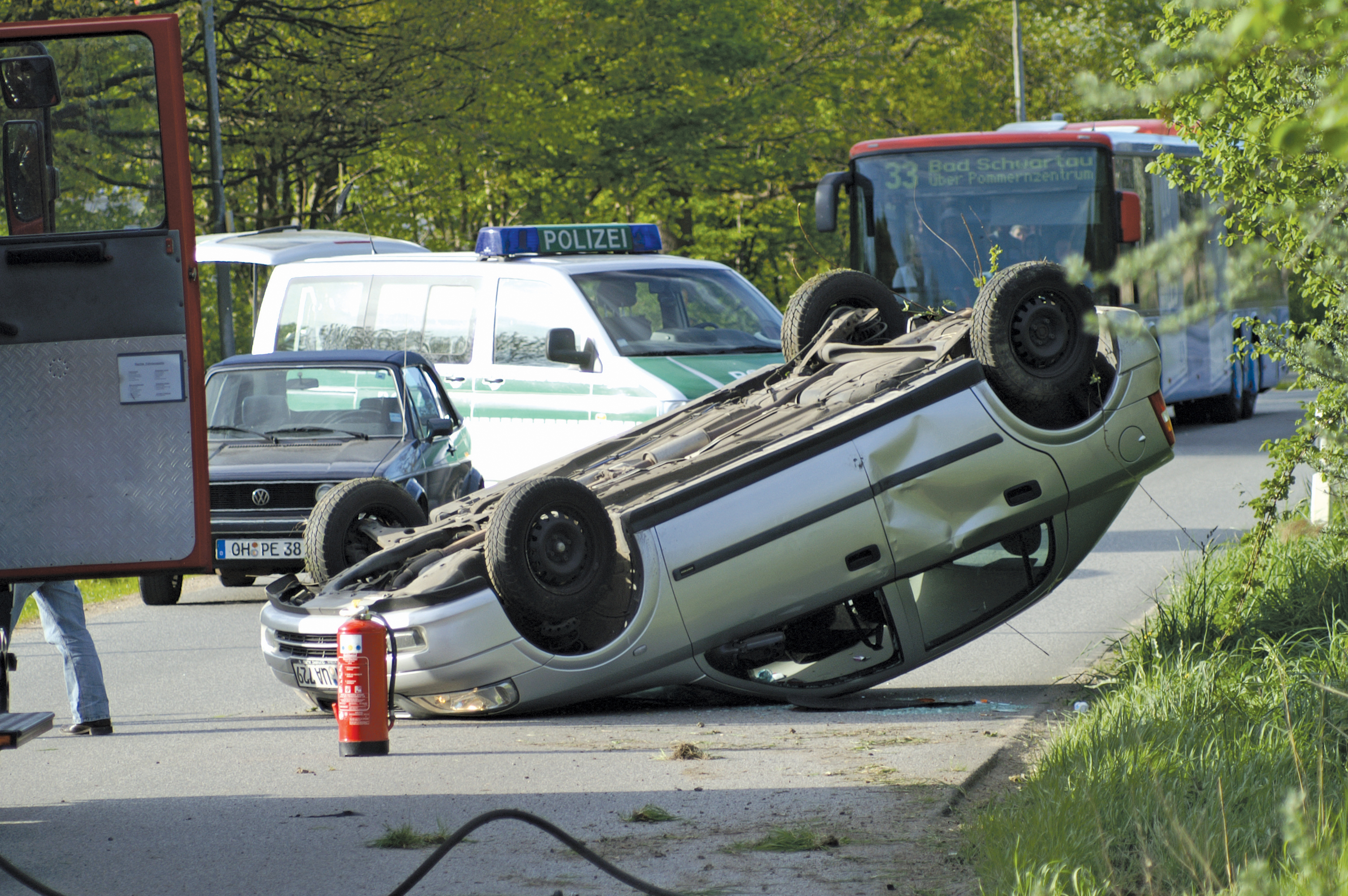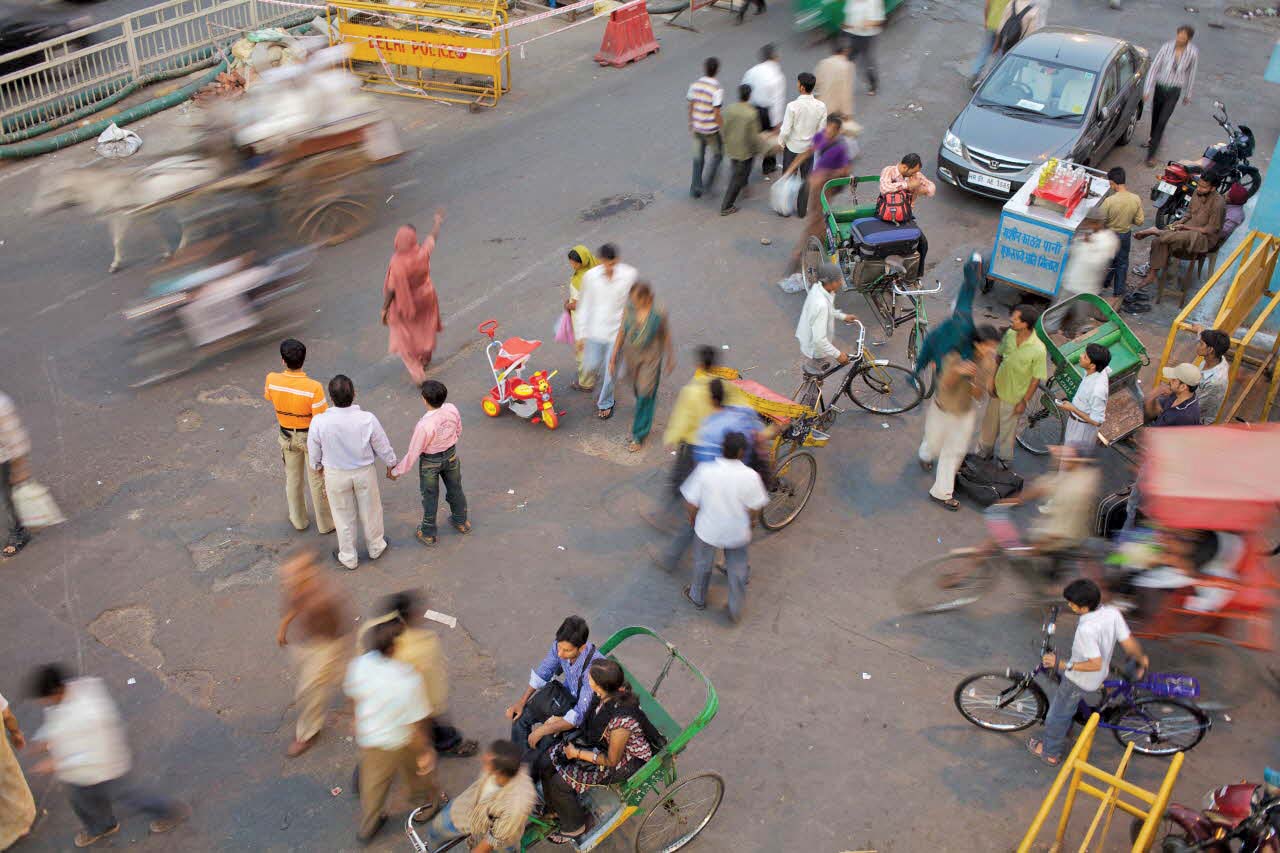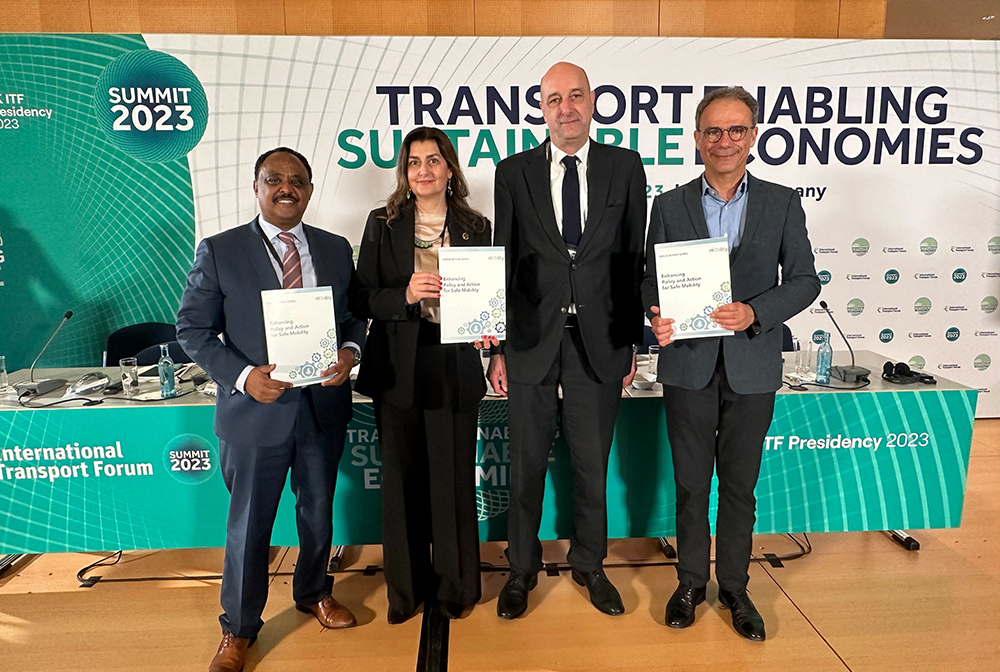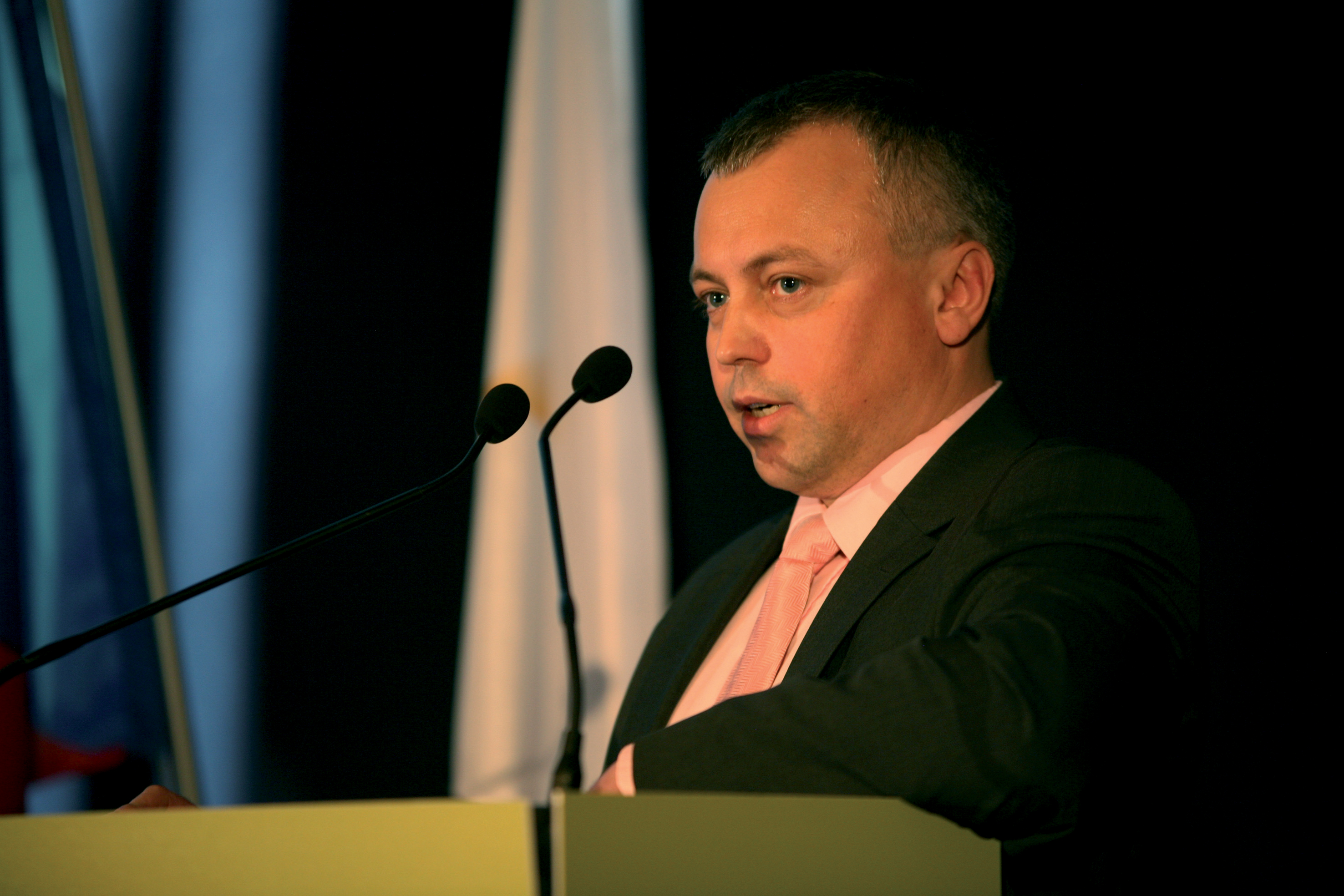*Martin Heath, the Chair of the IRF Group of Experts working group on Engineering Measures for Infrastructure Safety, examines the expected impacts of the new ISO 39001 The excitement and enthusiasm generated by the 2011 launch of the Decade of Action for Road Safety is gradually receding amidst the gloom of an interminably slow global economic recovery. However, a fresh and challenging impetus is about to be given to international road safety management following the publication of a new quality management

The ISO 39001 standard places a focus on road safety amongst businesses, with the intention of reducing road casualties
*Martin Heath, the Chair of the IRF Group of Experts working group on Engineering Measures for Infrastructure Safety, examines the expected impacts of the new ISO 39001
The excitement and enthusiasm generated by the 2011 launch of the3439 Decade of Action for Road Safety is gradually receding amidst the gloom of an interminably slow global economic recovery. However, a fresh and challenging impetus is about to be given to international road safety management following the publication of a new quality management systems standard by the International Standards Organisation (ISO).
Of particular relevance to1201 IRF Geneva Members will be the impacts that Road Traffic Safety Management are expected to have worldwide over the next 12 months since there is much discussion as to the extent to which it will affect those IRF Member organisations with business and operational activities that interact with the road traffic system.
Road traffic death and injury has remained a consistently high socio-economic and public health priority for Governments in almost every country since the Decade of Action was announced. But activities to bring about many of the road safety achievements targeted by the3262 United Nations, the 3263 World Health Organisation and others have been slow to materialise. The new ISO 39001 Standard establishes a road safety management tool that will assist organisations, across both public sector and commercial fields, in taking significant steps towards the reduction and ultimate elimination of road deaths and serious injuries.
The ISO 39001 standard aims to stimulate a much sharper management focus on road safety amongst businesses. This calls for robust leadership and better coordination of the wide variety of traffic safety related functions that many organisations undertake, to result in wider and more cost-effective stewardship of our road traffic systems. ISO 39001 sets out to establish a global recognition standard for RTS management good practice, which will enable accredited organisations to attain their RTS objectives at levels exceeding those that might normally be achieved.
The UN Decade of Action for Road Safety recognises that Governments simply cannot secure RTS improvements on their own, and that wider society has a very practical role to play. ISO 39001 therefore challenges organisations of all types and sizes whose business activities, products and services (as well as the locations they deliver them to and the conditions under which they function - including the effectiveness of their RTS management systems) impact on road traffic safety.
The new standard also offers governments, institutions, societies and associations an opportunity to raise the profile of traffic safety performance, even during these harsh economic times, to levels of performance above those that simple adherence to national laws and standards would attain. Similarly, corporations, companies, partnerships and businesses can both secure and demonstrate robust traffic safety standards whilst, at the same time, meeting their own commercial objectives and sympathetic societal goals.
Experience from across the world has shown that large reductions in road deaths and serious injuries can be achieved through the adoption of a holistic Safe System approach to RTS. Such an approach calls for a clear and unequivocal focus on the achievement of road traffic safety results through targeted, evidence-based traffic safety management actions, sufficiently supported by appropriate organisational capacity.
As a first step, organisations are called upon to identify and acknowledge the RTS context in which they operate. This can be described as the interactions between four key components: the road network; the vehicles operating on that network; the ways in which both roads and vehicles are used, and emergency medical response, care and rehabilitation.
These components will usually be controlled and/or influenced at local, regional, national and international levels by both public and commercial organisations. The extent to which the majority of RTS performance factors advocated by the new standard will apply will depend on the geographical scope of each organisation, and the significance of each RTS performance factor will vary too.
The ISO 39001 standard will be of immediate interest to freight, logistics and passenger transport businesses who have an impact upon RTS, either directly or whilst contracted to/by client organisations. The standard also concerns those organisations that generate traffic to and from locations such as retail centres, supermarkets, schools and tourism locations whose activities impact upon road traffic safety. This filters right down to individual employees’ use of the road transport system while travelling to and from work, or while performing official duties whilst on the road. It also covers pupils and students who are likely to use public transport or private vehicles, as passengers or drivers, or while walking or cycling.
Naturally, those organisations delivering services and products for the road traffic system itself, in either municipal or commercial roles, are also included. This latter group is of particular relevance and interest to IRF Members since the standard covers RTS management performance factors for those engaged in the ‘planning, design, construction and maintenance of road infrastructure’ and the vehicle fleets they utilise to deliver their products and services.
Health and enforcement agencies are also key participants in RTS performance, through their delivery of emergency medical response, collision trauma care and rehabilitation, as well as enforcement and legislative activities.
The scope of ISO 39001 is clearly global. Even though some of the organisations covered by the standard may only have a small number of processes linked to road traffic safety issues, some of these can be very important in reducing road deaths and serious injuries. An ISO 39001 compliant RTS management system can easily be integrated into, or made compatible with, other business management systems such as ISO 9001 and ISO 14001, as well as established quality management processes within the organisation.
The new standard promotes the development of an iterative, continual improvement process (Plan – Do – Check - Act) and will guide organisations towards delivery of their RTS results. ISO 39001 offers a helpful organisational quality management model for RTS management.
Above all, the new ISO 39001 standard asserts that a high level of commitment, cascaded down through organisations by senior management, is critical to the success of RTS management. Robust leadership will motivate and empower key personnel to contribute to the effectiveness of the organisation’s management system and reinforce accountability for RTS results.
Establishing and maintaining an efficient internal traffic safety environment or culture, in which employees can become fully involved in adopting and pursuing the organisation’s RTS objectives, means that senior staff must lead by example. The ISO 39001 places an emphasis on the demonstration of leadership and sustainable management processes.
IRF Members are encouraged to start considering the impact of ISO 39001 upon their policies and business management structures, both directly and throughout their supply chains. The IRF Group of Experts on Road Safety will continue to provide practical ongoing guidance on steps that different member organisations can take as interest continues to grow.
*Martin Heath is road safety manager for the City Council of Brighton & Hove in the UK. He is also technical director of MHA Planning & Transport, a member of the British Standards Institution‘s (5995 BSI) Committee TC 241 for ISO 39001 Standard and author of ‘RSTM: ISO 39001 & How to Achieve It.
%$Linker:2 Email <?xml version="1.0" encoding="utf-16"?><dictionary /> 0 0 0 oLinkEmail martin.heath4@ntlworld.com Martin Heath false mailto:martin.heath4@ntlworld.com true false %>.
The excitement and enthusiasm generated by the 2011 launch of the
Of particular relevance to
Road traffic death and injury has remained a consistently high socio-economic and public health priority for Governments in almost every country since the Decade of Action was announced. But activities to bring about many of the road safety achievements targeted by the
The ISO 39001 standard aims to stimulate a much sharper management focus on road safety amongst businesses. This calls for robust leadership and better coordination of the wide variety of traffic safety related functions that many organisations undertake, to result in wider and more cost-effective stewardship of our road traffic systems. ISO 39001 sets out to establish a global recognition standard for RTS management good practice, which will enable accredited organisations to attain their RTS objectives at levels exceeding those that might normally be achieved.
The UN Decade of Action for Road Safety recognises that Governments simply cannot secure RTS improvements on their own, and that wider society has a very practical role to play. ISO 39001 therefore challenges organisations of all types and sizes whose business activities, products and services (as well as the locations they deliver them to and the conditions under which they function - including the effectiveness of their RTS management systems) impact on road traffic safety.
The new standard also offers governments, institutions, societies and associations an opportunity to raise the profile of traffic safety performance, even during these harsh economic times, to levels of performance above those that simple adherence to national laws and standards would attain. Similarly, corporations, companies, partnerships and businesses can both secure and demonstrate robust traffic safety standards whilst, at the same time, meeting their own commercial objectives and sympathetic societal goals.
Experience from across the world has shown that large reductions in road deaths and serious injuries can be achieved through the adoption of a holistic Safe System approach to RTS. Such an approach calls for a clear and unequivocal focus on the achievement of road traffic safety results through targeted, evidence-based traffic safety management actions, sufficiently supported by appropriate organisational capacity.
As a first step, organisations are called upon to identify and acknowledge the RTS context in which they operate. This can be described as the interactions between four key components: the road network; the vehicles operating on that network; the ways in which both roads and vehicles are used, and emergency medical response, care and rehabilitation.
These components will usually be controlled and/or influenced at local, regional, national and international levels by both public and commercial organisations. The extent to which the majority of RTS performance factors advocated by the new standard will apply will depend on the geographical scope of each organisation, and the significance of each RTS performance factor will vary too.
The ISO 39001 standard will be of immediate interest to freight, logistics and passenger transport businesses who have an impact upon RTS, either directly or whilst contracted to/by client organisations. The standard also concerns those organisations that generate traffic to and from locations such as retail centres, supermarkets, schools and tourism locations whose activities impact upon road traffic safety. This filters right down to individual employees’ use of the road transport system while travelling to and from work, or while performing official duties whilst on the road. It also covers pupils and students who are likely to use public transport or private vehicles, as passengers or drivers, or while walking or cycling.
Naturally, those organisations delivering services and products for the road traffic system itself, in either municipal or commercial roles, are also included. This latter group is of particular relevance and interest to IRF Members since the standard covers RTS management performance factors for those engaged in the ‘planning, design, construction and maintenance of road infrastructure’ and the vehicle fleets they utilise to deliver their products and services.
Health and enforcement agencies are also key participants in RTS performance, through their delivery of emergency medical response, collision trauma care and rehabilitation, as well as enforcement and legislative activities.
The scope of ISO 39001 is clearly global. Even though some of the organisations covered by the standard may only have a small number of processes linked to road traffic safety issues, some of these can be very important in reducing road deaths and serious injuries. An ISO 39001 compliant RTS management system can easily be integrated into, or made compatible with, other business management systems such as ISO 9001 and ISO 14001, as well as established quality management processes within the organisation.
The new standard promotes the development of an iterative, continual improvement process (Plan – Do – Check - Act) and will guide organisations towards delivery of their RTS results. ISO 39001 offers a helpful organisational quality management model for RTS management.
Above all, the new ISO 39001 standard asserts that a high level of commitment, cascaded down through organisations by senior management, is critical to the success of RTS management. Robust leadership will motivate and empower key personnel to contribute to the effectiveness of the organisation’s management system and reinforce accountability for RTS results.
Establishing and maintaining an efficient internal traffic safety environment or culture, in which employees can become fully involved in adopting and pursuing the organisation’s RTS objectives, means that senior staff must lead by example. The ISO 39001 places an emphasis on the demonstration of leadership and sustainable management processes.
IRF Members are encouraged to start considering the impact of ISO 39001 upon their policies and business management structures, both directly and throughout their supply chains. The IRF Group of Experts on Road Safety will continue to provide practical ongoing guidance on steps that different member organisations can take as interest continues to grow.
*Martin Heath is road safety manager for the City Council of Brighton & Hove in the UK. He is also technical director of MHA Planning & Transport, a member of the British Standards Institution‘s (
%$Linker:











